By Daria Bachmann
Embracing plastic-free travel is not easy for many people. I mean, how in the world can you avoid plastic while traveling?
You’ve most likely heard about green travel, a concept that describes a way of traveling that is aimed at reducing our negative impact on the environment and the places we visit.
Well, adopting a plastic-free lifestyle is a big part of green travel, as this harmful material is destroying the earth.
In fact, according to National Geographic, if we don’t take drastic action now, plastic waste in the sea will nearly triple by 2040. This is truly terrifying for our wildlife and our planet.
Now, you are probably thinking, “Wait, how is it possible? In today’s world, everything is wrapped in plastic. Even if I take small strides, I’m not going to make that much difference.”
This is a common misconception.
Sure, it takes a collective effort for a big change to happen. But you can become an example for others and teach them about a plastic-free lifestyle — and potentially even a zero-waste travel lifestyle.
Being an advocate for this cause can lead to real results, and you would be amazed that it could all start with just one person:
You.
On that note, let’s dive into some powerful tips that will help you reduce your plastic footprint.
Disclosure: This post contains affiliate links to trusted partners we think you’ll love!

12 Ways To Support Plastic-Free Travel
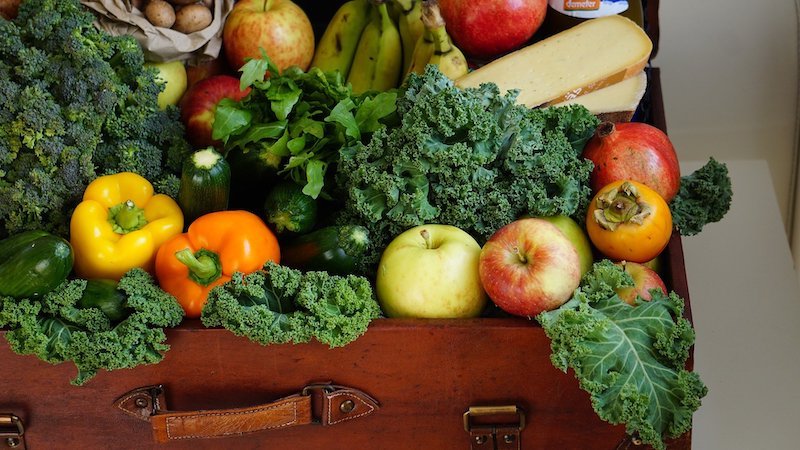
1. Buy Local Products
Trying to find a store that sells locally-made goods can be challenging, especially when you are short on time and are trying to visit numerous places before flying to another destination the next day.
Which is also an argument for slow travel, but that’s another article.
The truth is, if you do some research beforehand, you can map out the best places to shop local and save yourself time later. In fact, you can save these spots into a Google Map so they’re ready to go.
When possible, spend your money on products that are made and grown locally — as opposed to those that have been shipped from continent to continent for thousands of miles.
Along with avoiding the packaging needed to ship the products, local vendors — especially those who are selling their products on street stands — are less likely to wrap their product in layers of plastic.
Plus you will invest in and support the local economy.
Many countries have local markets that offer amazing products and crafts, too.
Visiting them is an incredible experience, as you get to purchase authentic souvenirs and meet locals while traveling.
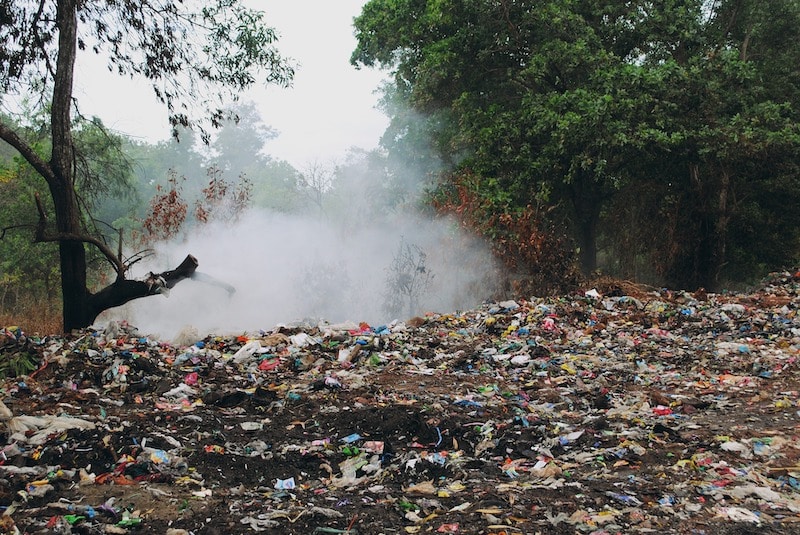
2. Avoid Plastic Bags
This is one of the most basic rules of green shopping.
These days, plastic can be found in many ecosystems throughout the world and is blamed for the population decline of numerous species.
You might think that a single plastic bag is not going to make a difference, however, it does.
According to the Center For Biological Diversity, plastic bags become a deadly waste for landfills and oceans, where they are often mistaken as food by birds, sea turtles, and other animals.
In the United States alone, people use a whopping 100 billion plastic bags a year, according to the Center, and the average American family takes home nearly 1,500 plastic shopping bags a year.
Let that figure sink in.
But if you make an effort to reduce your plastic footprint and stay consistent, your actions can add up to significant results over time.
Whenever you shop, bring a reusable bag or ask to wrap your goods in the paper. This is one of the easiest ways to cut back on plastic.
By the way, you can get 10% off EarthHero’s sustainable shopping bags with code “JESSIE10”.

3. Always Check The Materials
Who doesn’t love shopping trinkets and cute souvenirs when visiting a new country?
Going back to my first point about shopping local, even when you shop at a local market, you should always check what materials products are made of.
Unfortunately, it’s not uncommon for tourists to find products that were made from animals or plants that have been poached or obtained illegally.
Some common unethical materials that may be in your souvenirs include ivory, crocodile skin, and seashells.
Local vendors who sell unethical products or souvenirs to tourists do not typically disclose their origin, as they hope this information remains secret.
It’s on you to make sure that your money doesn’t end up supporting illegal and unethical activities like poaching and wildlife trafficking.
To help, the Word Wildlife Fund recommends asking the following questions:
- What is this product made of?
- Where did this product come from?
- Does the country I’m visiting allow the sale and export of this product?
- Do I need permits or other documents from this country or the United States to bring this item home?

4. Choose Eco-Friendly Hotels
Nowadays, there are myriad hotels that truly care about the earth and want to make a positive impact on the planet while providing a great guest experience, like these eco-friendly hotels in NYC.
There are many websites where you can find environmentally-friendly as well as overall conscious accommodations, Ecobnb, Book Different, and the Green Hotels Association.
Moreover, you might consider staying in a local home by booking through platforms like Airbnb (where it’s legal), Couchsurfing, and TrustedHousesitters.
Staying in the home of a local can help you reduce energy consumption — hotels tend to have a large carbon footprint — while supporting locals directly.
Before booking your accommodation, it’s recommended to check:
- if a property is staffed by local employees,
- if it’s committed to conservation efforts, and if so, what those efforts are,
- if the property does anything to reduce consumption of water and electricity,
- and if the property in any way contributes positively to the local community.
Conscious hotels that set out to make a positive difference in all aspects of their operation will typically be more thoughtful about single-use plastics.
Another thing you can do is to look for LEED Certified buildings that use renewable energy and recycle their waste among other efforts.
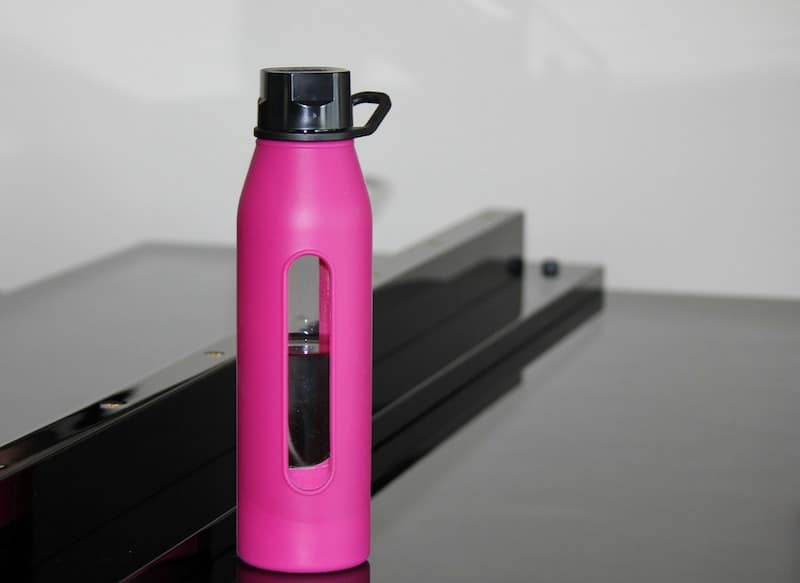
STOCK PHOTO VIA CLASICALLYPRINTED/PIXABAY
5. Carry Snacks & Water
Of course, eating and drinking on your trip is important — though if you want to avoid single-use plastics, consider bringing snacks and water with you, preferably in a plastic-free wrapper or container.
This allows you to plan in advance, meaning you won’t be forced into buying plastic fruit cups and water bottles when out sightseeing.
Instead, you’ll be able to opt for sustainable snacks like Bobo’s, Nature’s Path, Patagonia Provisions, and Alter Eco, a company whose products are made from compostable packages.
Speaking of water bottles, carry your own to avoid plastic.
While not every country has potable water readily available, certain countries like New Zealand, Switzerland, and Sweden boast excellent quality water that easily allows them to skip plastic bottles and utilize reusables.
And if the local water isn’t potable, there are plenty of reusable bottles featuring built-in water filters that allow you to purify water on the go.
Pro tip:
If you bring your water bottle, you can always ask a flight attendant to refill it instead of taking a small plastic cup every time you want to drink some water while on a plane.
Finally, if you love the outdoors and national parks, bringing waste-free food and drink is also a great way to help you become a more responsible hiker.

STOCK PHOTO VIA ISACHELNY/PIXABAY
6. Get Green Toiletries
You might have heard about biodegradable bamboo toothbrushes with charcoal bristles that help to reduce plaque.
Well, the good news is these toothbrushes are also a perfect alternative to traditional plastic toothbrushes that can harm the environment.
You can further minimize your impact by using biodegradable soap and shampoo bars that come without plastic containers.
All you need to do is to get a reusable metal container so you can take them with you every time you travel.
To do a complete overhaul of your toiletries, visit Life Without Plastic , Well Earth Goods, and EarthHero to shop their sustainable goods.
Bonus:
EarthHero offers 10% off most items with code “JESSIE10”.

7. Skip Plastic Cutlery & Straws
This is a huge no-no if you are serious about cutting back on plastic.
Skip plastic silverware and get one of those steel straws that you can carry with you in a small container. One brand to check out for reuseable straws is Simply Straws, a certified B-Corporation and a 1% For The Planet member.
You can get a couple of wooden forks and spoons, like this set, and carry them with you while you travel so you don’t have to use plastic silverware every time you grab takeout.

8. Consider Your Accessories
Travelers need certain accessories when hitting the road, like shoes.
Shoes are a huge culprit of plastic waste, as many are made with plastic and are not recyclable.
Instead of purchasing just any old pair, look for brands that make their kicks from sustainable and recycled materials, like NAE and Ecoalf who both use recycled PET bottles.
Pro tip:
Of course, these items aren’t all that you’ll need. It’s recommended to make a list of your travel essentials and do a total overhaul.
Even if you have to move through the list slowly, it’ll still be a step in the right direction.

9. Support Ecotourism
Book experiences that support ecotourism, provide jobs for locals, and set the standard for the environment.
A few ethical travel companies we love include Intrepid Travel, G Adventures, and REI Adventures, to name a few.
Beyond tours, Cunard and P&O plan to remove single-use plastics from their ships by the end of 2022, while Alaska Airlines and American Airlines are switching from plastic stir straws to bamboo.
Additionally, Marriott International is converting to a shampoo dispenser system in 1,500 hotels by the end of 2020 that will eliminate 10.4 million plastic mini bottles.
These are just a few of many travel companies making a positive impact and decreasing their plastic use.
If you’d like to learn about more, check the Global Sustainable Tourism Council’s member directory — though also note that just because a travel company did not apply for certification and is not on this list does not mean they’re not sustainable. There are many reasons a company may choose not to go through the certification process.
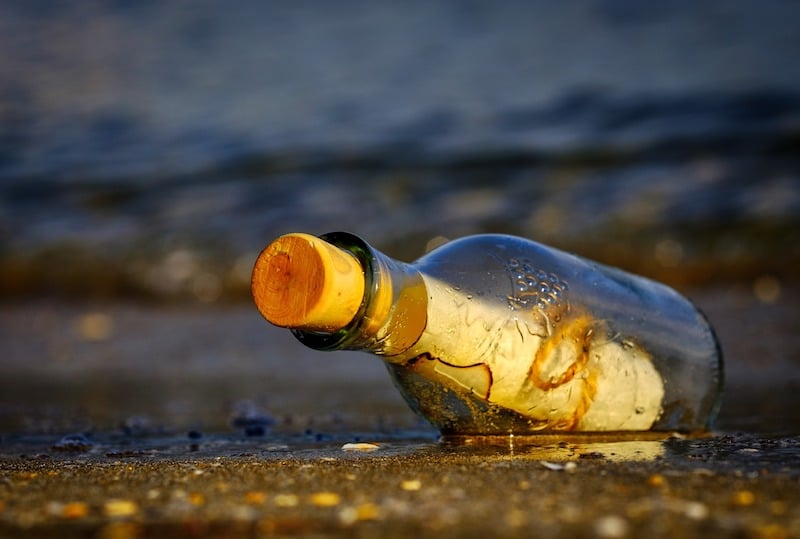
STOCK PHOTO VIA ATLANTOIS/PIXABAY
10. Spread The Message
Here is another idea for supporting plastic free travel:
Be an advocate for green vacationing and make sure to educate others about the harm that plastic does to the environment.
You can do this by simply talking to people, posting information on your blog or social media, or collaborating with nonprofits who are dedicated to reducing plastic, like Clear Blue Sea.
Often, organizations like these can provide action steps and messaging you can share. This also helps guarantee you’re sharing accurate information.
Additionally, if you want to spread the word about the negative impact of plastic use while traveling, working with nonprofits in the destination you’re visiting helps ensure you’re sharing with sensitivity and in a way that can actually make a difference (vs coming in and assuming you know what is best).

11. Move Toward A Zero-Waste Lifestyle
If you adopt a zero-waste lifestyle overall, avoiding plastic will become second nature on your travels, as well.
Now, if this sounds intense, don’t worry, you don’t have to dive in head-first.
Instead, take small and sustainable actions to reach your larger goal.
If you want to commit to reducing your plastic footprint, you can start by buying reusable grocery bags.
After that, replace your toothbrush with the one made out of bamboo, then choose to stop shopping at fast fashion stores.
From there, you might invest in zero waste makeup brands and beauty companies to overhaul your personal care routine.
These lifestyle changes might seem insignificant at first, but they can add up to big results over time.

12. Support Sustainable Initiatives
Today, there are many brands offering quality goods that are also passionate about the environment — to the point where your purchase will not only get you an incredible item but allows you to give back.
One example is Trashy Bags in Ghana, a company that makes stylish bags from recycled plastic trash.
Another inspiring brand is I Thought Of You, a woman-owned business that sells Fair Trade and sustainable products with a story.
We’re also big fans of NOVICA, an online marketplace that works to empower artisans and put dollars into their pockets. Bonus: They have an entire Eco-Friendly Gifts section of their site!

Plastic-Free Travel FAQ
Now let’s discuss some common plastic free travel questions and help get you closer to a zero-waste lifestyle.
Q: Is a plastic free environment possible?
A plastic environment is possible, however, it’s not easy to accomplish. It takes a collective effort and serious changes in lifestyle and policies on the part of many countries.
Q: Why does plastic end up in the ocean?
Plastic is one of the biggest threats to marine ecosystems. It ends up in the ocean simply because the sheer volume of it makes it difficult to process all of it, and the approach to handling plastic waste differs from country to country.
The wind and rain carry garbage around before it ends up in waterways such as a river, lake, or stream. And since many waterways fall into the ocean at some point, the trash brought from the streets can also end up there.
Additionally, many developing countries have poor waste management systems, or lack thereof, and are unable to process all of the incoming waste that often ends up polluting the landfill or landscapes.
Sadly, in many cases, plastic takes centuries to decompose.
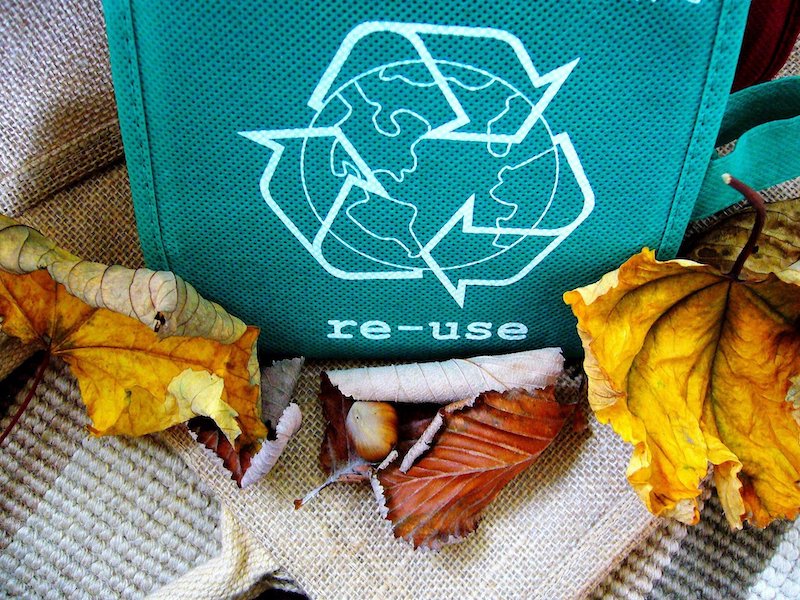
STOCK PHOTO VIA SHIRLEY 810/PIXABAY
Q: What could be done to reduce the amount of plastic we use?
If you want to reduce your plastic footprint, there are certain things that you can start doing today. For example, you can start separating and recycling your waste, ditch plastic bags when grocery shopping (get reusable ones instead), and buy less food that is packaged in plastic.
Saying no to plastic straws is huge. They often end up killing wildlife like birds and turtles and there’s absolutely no need for plastic straws these days. This is especially true when there are reusable alternatives, like this stainless straw with cleaning brush.
And do yourself a favor, get a reusable bottle, like this one, that you can carry around and refill every time you want to drink. You will help the environment and save money, too.
Sustainable Travel Brands We Love
To end, here is a quick list of some of our favorite ethical travel brands, some of which were mentioned above:
Sustainable Travel Insurance
Sustainable Tours
- NYC Photo Journeys (note: this day tour company in NYC is owned by Epicure & Culture’s editor, Jessie Festa)
- Lokal Travel
- Backstreet Academy
- Intrepid Travel
- BookYogaRetreats
- REI Adventures
Sustainable Travel Gear & Essentials
- Cotopaxi
- REI
- NOVICA
- Stowaway Cosmetics
- Speakeasy Travel Supply Co
- Cairn Adventure Travel Box
- ABLE
- The Helm
- Rheos Sunglasses
- Cool-jams Performance Sleepwear
- Wowe Lifestyle
- Well Earth Goods
- Life Without Plastic
- Simply Straws
- EarthHero (10% off most items with code “JESSIE10”)

How do you support plastic-free travel and embrace sustainable tourism?
Enjoyed this post on traveling plast-free? Pin it for later!
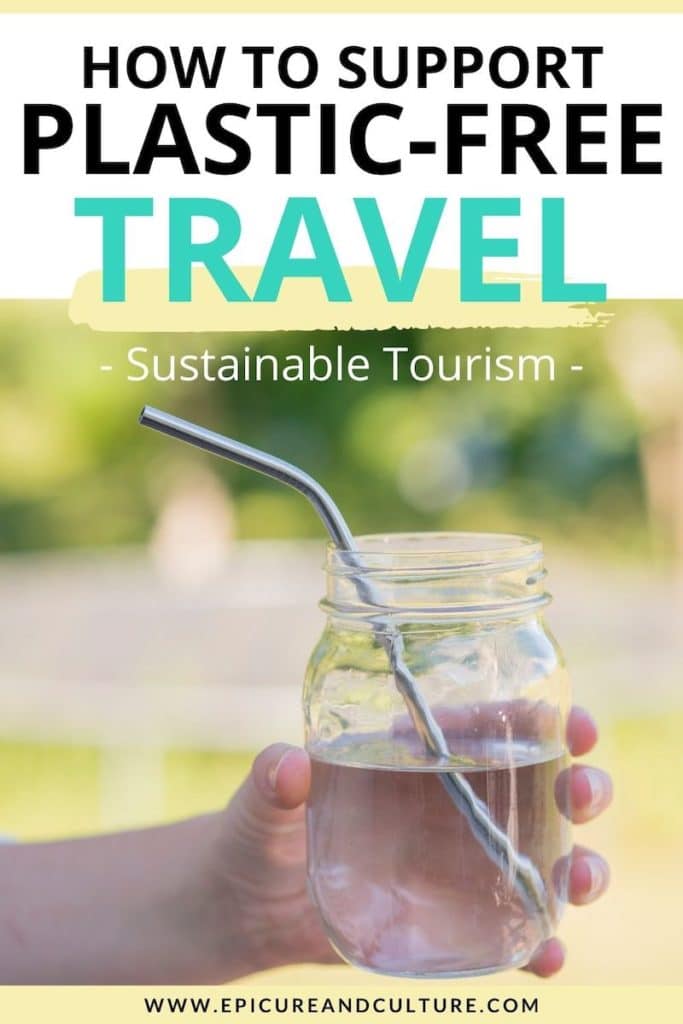
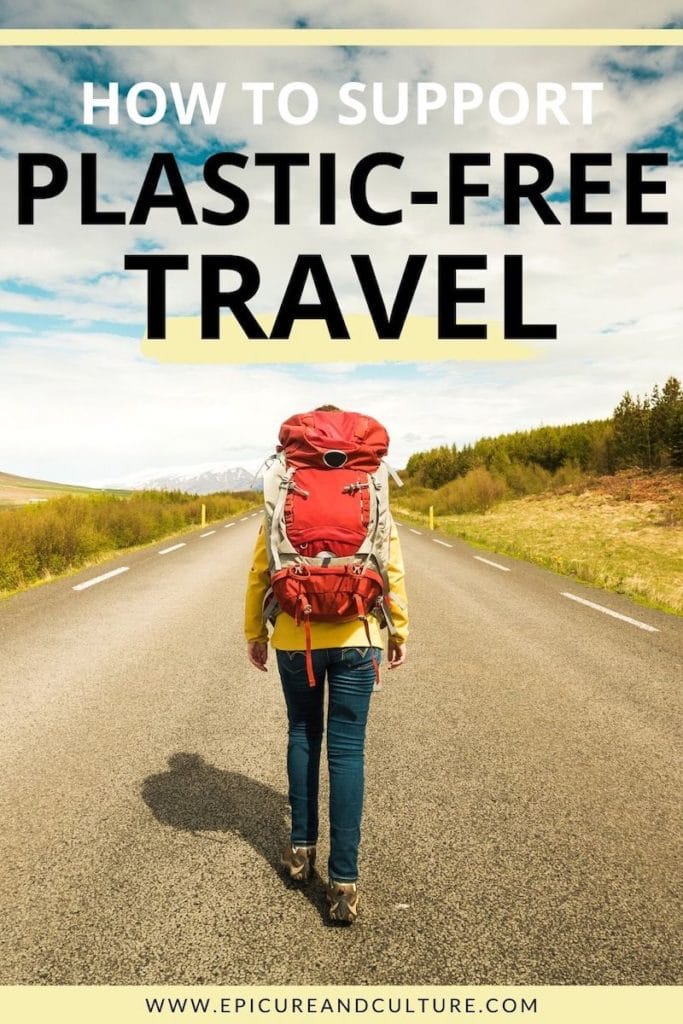
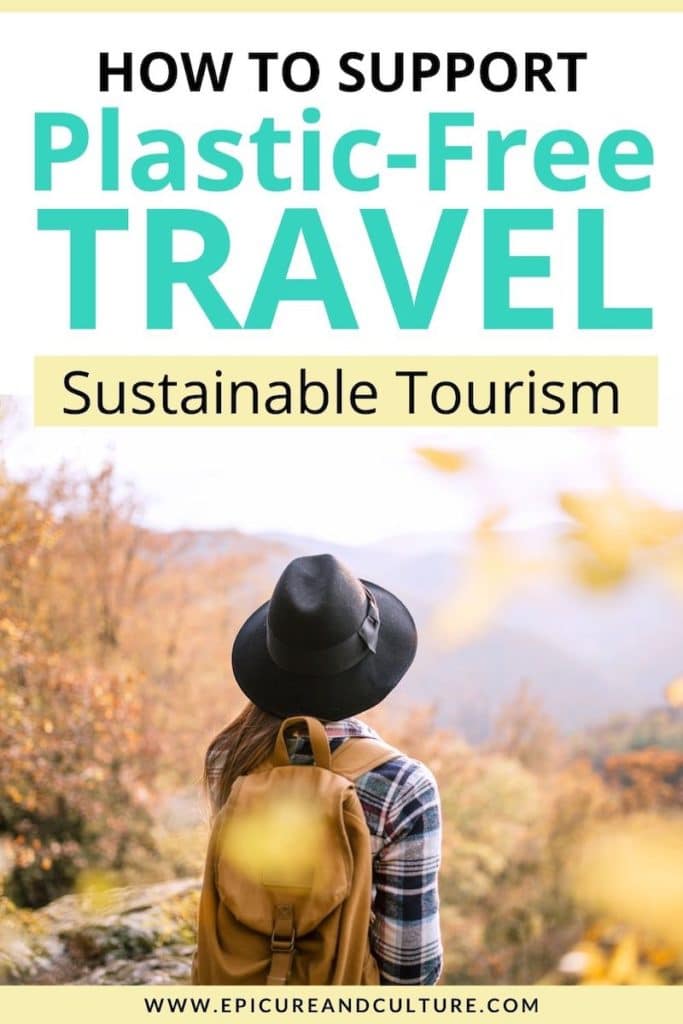

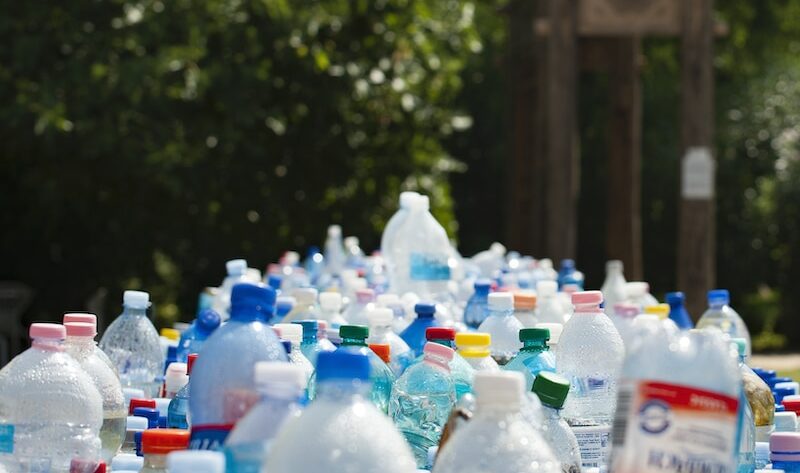



Couldn’t agree more with it. Plastic is toxic for environment. That’s why I’m on the free plastic bag team. I carry my own tote’s bag everywhere I go.
Really useful tips. I just wish more people come across your blog and get inspired to do something for the environment. Great job
Wonderful content, it’s really helpful
thank you very much for sharing this.
Great post. Love from Deon’s Fitness Blog.
nice article, easy read.
nice article.
Great work! Keep it up! Regards from Intoptrend
Interesting Read!
Nice Information. Thanks for sharing.
This is awesome, plastic-less is the way to go for our environment!
-James
http://www.photostamped.com
Great work! Keep it up! Good Blog
nice article
Thanks For Sharing
The post was really great and informative. Thanks a lot for sharing that post!
Leave your stress and go on 18 days long Kanchenjunga circuit trek
Thank you for highlighting the main points of plastic-free travel and giving tips on sustainable tourism. I started being interested in sustainable and green living yet in college. I loved the idea of living in an eco-friendly way https://ivypanda.com/blog/green-tips-for-students/ and tried what I could to implement this in practice. Hopefully, more people will realize the need to reduce the use of plastic as much as possible, and by this means, minimize the negative impact on nature.
Thank you for highlighting the main points of plastic-free travel and giving tips on sustainable tourism. I started being interested in sustainable and green living yet in college. I loved the idea of living in an eco-friendly way https://ivypanda.com/blog/green-tips-for-students/ and tried what I could to implement this in practice. Hopefully, more people will realize the need to reduce the use of plastic as much as possible, and by this means, minimize the negative impact on nature.
Awesome article. Please do check our amazing article on How to address a postcard
This was a really helpful article and it provided us with a lot of interesting facts. Thanks a lot.
I am an artist and looking into diversified cultures is what I love.
Thank you! Being plastic free in East asia is sooo hard though. Almost eveything is packaged
wow super dear khatrimaza very nice post
Awesome article. Please do check our amazing renovations website on Click Here
“This blog is very interesting and provides some great information for those who are trying to be more environmentally friendly. I like how the blog focuses on tips that can be used to help one’s lifestyle from home to the destination. Blog Review has many great articles about various topics like plastics in travel, saving money, and eco-friendly destinations.”
Greetings, I loved your blog!
nice
Wonderful blog! This is really informative and efficient information.
Awesome, this is just the information I needed to read!